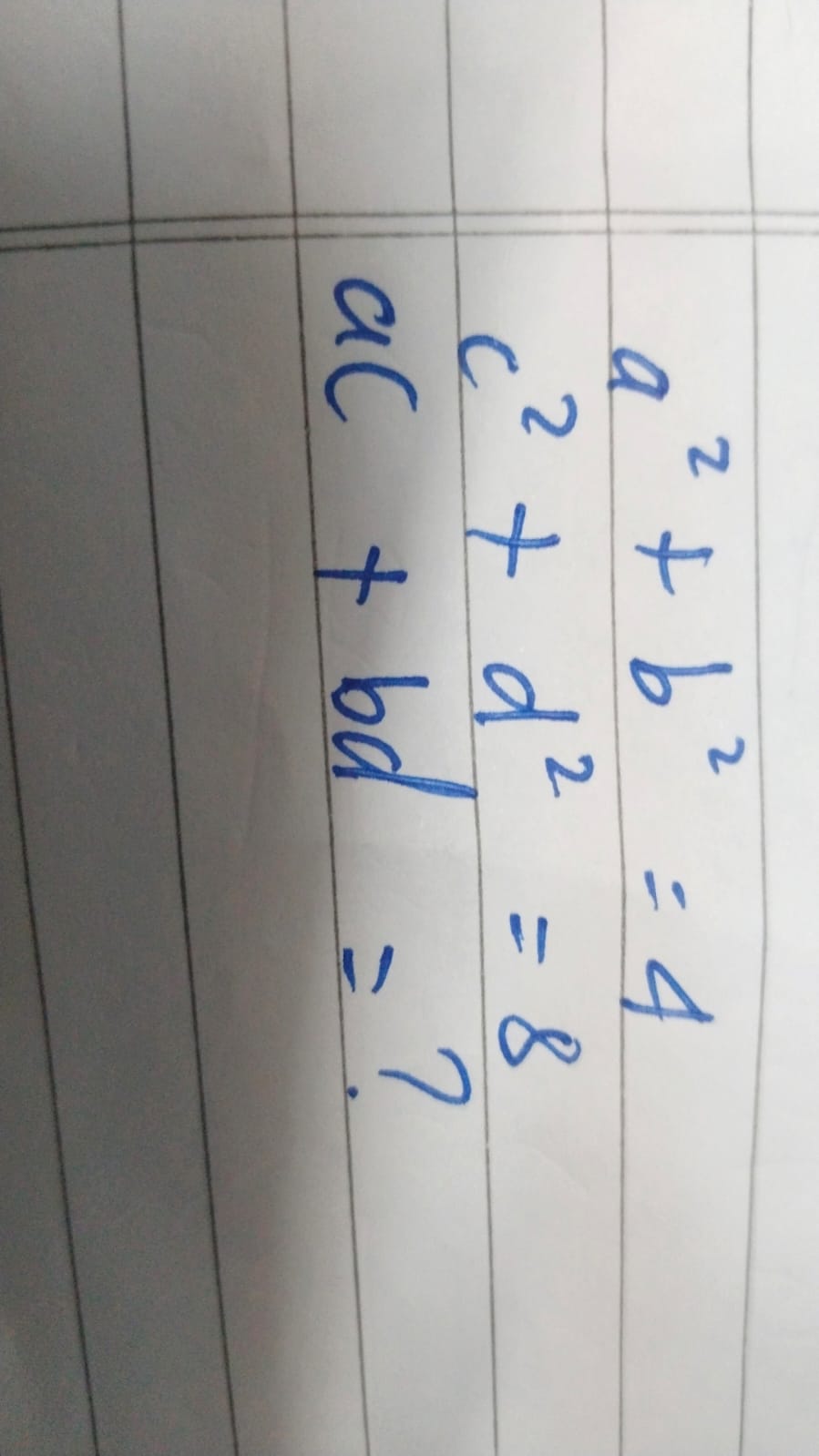If a^2 + b^2 = 4 and c^2 + d^2 = 8, what is ac + bd?

Understand the Problem
The question is asking to find the value of the expression 'ac + bd' given the equations a^2 + b^2 = 4, c^2 + d^2 = 8. This requires applying algebraic techniques possibly related to the identities involving squares and products.
Answer
The maximum value of \( ac + bd \) is \( 4\sqrt{2} \).
Answer for screen readers
The maximum value of ( ac + bd ) is ( 4\sqrt{2} ).
Steps to Solve
-
Use the identity for squares We can use the identity that relates the squares of sums to the products: $$(a + bi)(c + di) = ac + adi + bci - bd$$ From this, we can derive that: $$ a^2 + b^2 = (a + bi)(a - bi) $$
-
Relate to given equations Given:
- ( a^2 + b^2 = 4 )
- ( c^2 + d^2 = 8 )
We want to find the value of ( ac + bd ).
-
Apply the Cauchy-Schwarz inequality According to the Cauchy-Schwarz inequality, we have: $$(a^2 + b^2)(c^2 + d^2) \geq (ac + bd)^2$$ Substituting the known values: $$(4)(8) \geq (ac + bd)^2$$
-
Simplify the inequality This simplifies to: $$32 \geq (ac + bd)^2$$
-
Take square roots Taking the square root of both sides gives: $$ \sqrt{32} \geq |ac + bd| $$ So, we have: $$ ac + bd \leq 4\sqrt{2} $$
-
Setting maximum condition The maximum value ( ac + bd ) can reach is when the vectors formed by ( (a, b) ) and ( (c, d) ) are parallel. Thus, the best outcome we are looking for from our setup is: $$ ac + bd = 4\sqrt{2} $$
The maximum value of ( ac + bd ) is ( 4\sqrt{2} ).
More Information
The inequality utilized here is related to the concept of dot products in vector spaces. The Cauchy-Schwarz inequality provides a significant insight into the relationship between magnitudes and angles in multi-dimensional spaces.
Tips
- Misapplying the Cauchy-Schwarz inequality by ignoring the conditions of equality which would require the vectors to be in the same direction.
- Not substituting the given values accurately into the identities or inequalities.
AI-generated content may contain errors. Please verify critical information